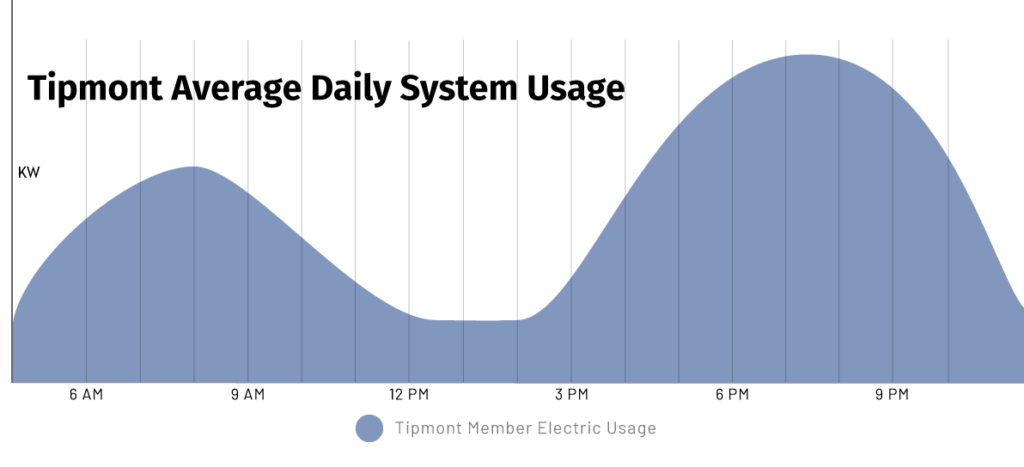
I hope 2025 is off to a great start for you. It’s a natural time to reflect on our routines and contemplate even a few small tweaks for improvement. Typically, we look to improve hobbies, relationships, physical activity, or work goals. But it works for your energy usage, too. Even a slight shift in the time of day during which you use electricity can make a difference.
That’s right: The time of day. There are many ways to reduce the amount of electricity you use without sacrificing security, comfort, or convenience. But when you use electricity is as important as how much of it you use.
Tipmont’s membership base is over 90% residential, so the timing of two daily spikes in electricity use won’t surprise you. The first is in the morning as we rise for school, work, and other daily activities. It happens again in the afternoon and evening as we return home — adjusting the thermostat, washing clothes, using kitchen appliances, running the dishwasher, or watching TV. Now, multiply that by 30,000 electric meters on Tipmont’s system. That’s a lot of demand, and the hours of that second spike are known as on-peak hours.
Today, most Tipmont members pay a flat rate. This means your cost for electricity is the same regardless of the time of day or demand on the system. But the energy Tipmont purchases and distributes to your home is sold at different prices depending on times of day when usage is higher or lower.
When usage is higher, at times known as on-peak hours, the energy Tipmont purchases costs more. Tipmont’s on-peak hours are currently 2 to 8 p.m. weekdays. During the other 18 hours of each weekday (and on weekends), we pay less. (Tipmont also offers time-of-use rates, in which members pay more than Tipmont’s standard rate from 2 to 8 p.m. weekdays but less at other times.)
As a cooperative, Tipmont’s goal is to provide safe and reliable energy at the lowest cost, so it’s in our shared interest to lower usage during those peak times. Shifting even one task outside of on-peak hours can reduce demand on Tipmont’s system and help save money — which we can then invest into infrastructure improvements that further enhance our service.
So, if you’re seeking a quick, easy way to improve your routine in 2025: Save the thermostat bump, laundry loads, dishwasher run, or any other high-usage activity until after 8 p.m. It’s an easy resolution to keep that in the long run saves energy and money for Tipmont and, ultimately, for you.